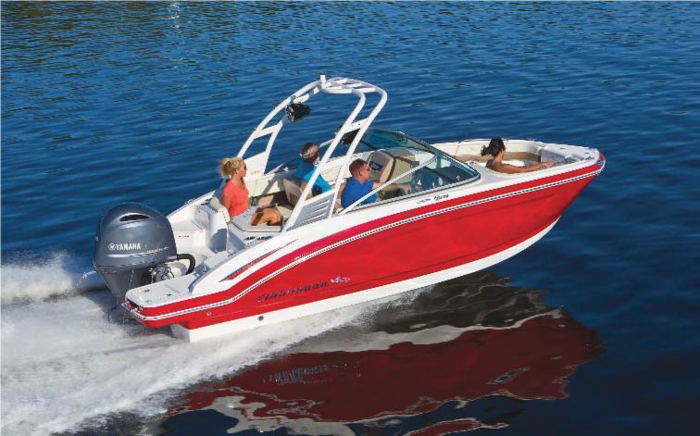The Universal Language of Boating

When you travel to a new land, you might bring along a pocket dictionary or app that can help you navigate the new language.
But on the water, as you travel to those new, exciting destinations, you don’t need to practice your new tongue just yet—you just need the language of the water!
As you gear up to globe-trot for exciting spring and summer excursions, read up on the universal language of boating—its pervasive influence, and how to make on‐the‐water adventures easier than ever to enjoy. Take a look.
Sayings of the sea
Boating is such a universal pastime, that old sailors’ sayings have made their way into our everyday vocabulary. Not so sure? Just look at terms like “all hands on deck,” referring to the need for a ship’s crew to put in a joint effort—or “don’t rock the boat,” or even “leeway” which was first used to describe a risky downwind that sailors should avoid by giving themselves some extra room to turn.
Of course, these age‐old sayings just scrape the surface. Whether you’re a beginning boater, or simply want to brush up on your on‐the‐water know‐how, read up on the following ten terms to know:
- Bow: This is the front of your boat—the part that faces forward, whose typically curved, triangular shape provides plenty of room for looking ahead (or kicking back!).
- Stern: The back of your boat.
- Port: The left side of your boat from the stern, looking ahead. You might be tempted to just say “left,” but using the term “port” instead lets you communicate more easily with passengers or fellow boaters, instead of needing to clarify what left you’re talking about—“my left or yours?”
- Starboard: On the same note, this refers to the right side of your boat when you’re
standing at the stern. - Aft: Another directional term, refers to the stern/rear area of your boat.
- Forward: Refers to the front end of your boat.
- Amidships: From sailing tradition, a fun way to say the center of the boat—not quite forward or aft.
- Topside: Heading above deck from a lower level.
- Beam: The widest part of your boat—a helpful term to keep in mind when considering turns, water sports, and other maneuverings.
- Ballast: Weight that’s added to your boat—in strategic ways—to perfect your turns.
Now that you’ve brushed up on the basics, of course, you can learn more about putting them to use on the water…
Terms for turns (and much, much more)
To ensure safety and smooth maneuvers on the water, the US Coast Guard established a few simple signals and gestures boaters should use, at home and abroad. The latter of these are designed to be used by boaters all over the world, so that you can cruise alongside another country’s boats and ships and still be “in the know.”
So, what are those universal signals? For international waters, “power‐driven vessels” (anything from sport cruisers to modern‐day cruise ships) should use one quick blast to say “I’m altering my course to starboard,” or two to say “I’m altering my course to port.” Similarly universal are warning signals and other sounds, like a longer blast to say “watch out” or “I’m leaving the dock,” or a quick succession of blasts to signal others of a potential risk, or a need for clarification.
Effortless communication
As you practice these simple signals and gestures, there’s one you cannot forget along the way—the simplest of all—common courtesy! It doesn’t take a mariner’s handbook to understand a smile or gesture of goodwill at the marina. Whether you’re traveling close to home or far and away, practicing looking out for your fellow boaters, wishing them well and helping them out, when needed, makes all the difference in your ease of enjoying the water.
When you’re familiar with the language of the water, you’re prepared to partake in a tradition as old as boating itself—sharing in the common experience of navigating (and enjoying) waterways old and new. We hope that today’s closer look helps you do just that!
Bookmark & Share
Previous Article
Next Article
